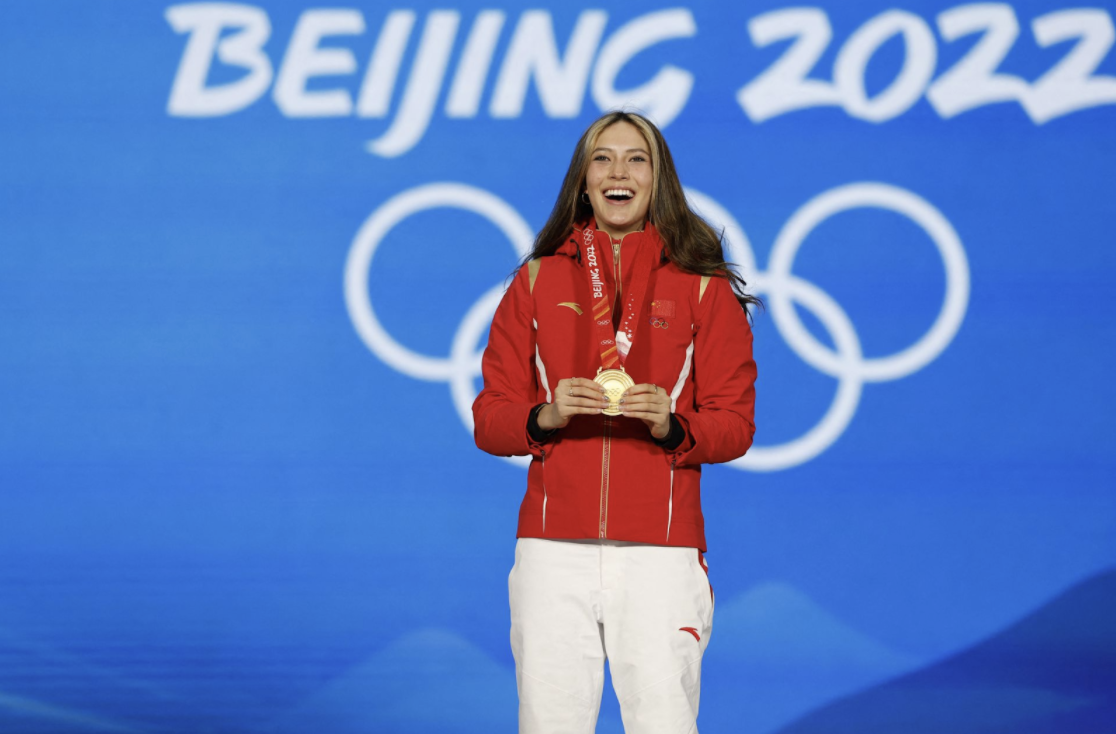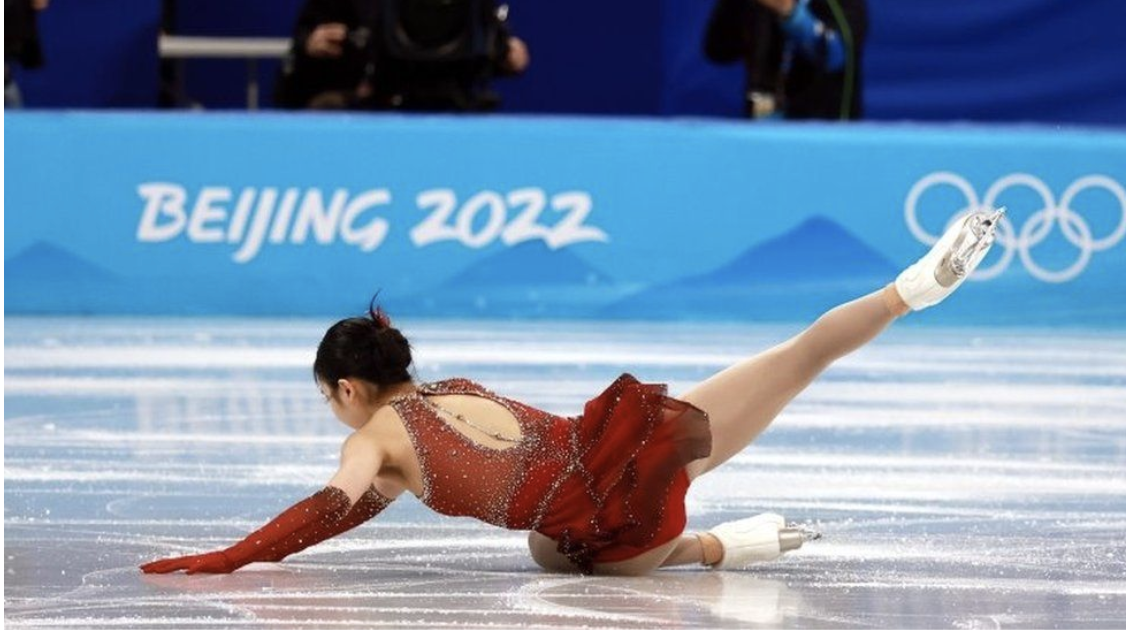Straddling Two Cultures: Chinese-Americans in the Olympics
Nathan Chen faced criticism from Chinese netizens following his gold medal performance in Beijing, China. PHOTO: The Salt Lake Tribune / Trent Nelson
Despite freezing temperatures on the slopes of the 2022 Beijing Winter Olympics, Chinese discourse over the role of American-born Chinese athletes in the Olympics have become incredibly heated this year. The majority of the conversation focuses around three prominent athletes: Eileen Gu, Zhu Yi, and Nathan Chen.
For Eileen Gu, her decision to compete for China in the Beijing Olympics has propelled her to Chinese glory. After interviews from CCTV captured her speaking Mandarin with the signature Beijing accent, Chinese netizens took to social media to express their support for the new member of China’s Olympic Team.
Gu Ailing Eileen celebrates on the podium. PHOTO: REUTERS/Tyrone Siu
Bryce Whitwam, adjunct professor of marketing at NYU in Shanghai, explains “She is extraordinarily charismatic and her appealing to Chinese culture and the simple fact that she came to China to want to be Chinese, that is a huge win for her”.
However, not all those who competed for China were afforded the same support. When Zhu Yi took to the ice as a debut member of the Chinese team, her lackluster performance proved to be something the Chinese public attacked without hesitation.
Following her performance, where a couple failed jumps placed Zhu Yi last in the women’s short program, the hashtag “Zhu Yi has fallen” began circulating on Weibo, China’s Twitter-like platform. After gaining 200 million views in several hours, the hashtag was ultimately wiped Sunday evening.
Zhu Yi fell twice during her performance. PHOTO: EPA/Fazry Ismail
However, this censorship has not stopped Zhu Yi from receiving a wave of criticism. Contrasting with Eileen, Zhu Yi did not conduct any interviews in Mandarin, prompting criticism from members of the Chinese public.
"Please let her learn Chinese first, before she talks about patriotism," a Weibo user said on Sunday.
Despite joining the Chinese Olympic team and changing her name from Beverly Zhu to Zhu Yi, Zhu Yi still suffers from nationalistic attacks that she’s “not Chinese enough.”
However, these harsh criticisms are even further exacerbated when a Chinese-American athlete is not competing for China. After winning gold for Team USA in men’s individual figure skating, Nathan Chen was deemed a “traitor” and Chinese netizens called for him to “get out of China.”
For Nathan, this reaction is not uncommon. He faced similar backlash when he supported his teammate Evan Bates’ condemnation of the Uyghur situation and when he skated to a song from “Mao’s Last Dance,” a film about a Chinese defector.
When asked about these responses, Nathan replied “I don’t have social media here. So I probably have been very sheltered from that. And I don’t plan on looking at social, since sometimes social (media) can be a little toxic."
Clearly, it takes a specific set of characteristics for the Chinese population to accept someone of Chinese ethnicity to represent China. Even for Eileen, this task is not easy.
Despite avoiding questions about her citizenship, an instagram comment about VPNs prompted Eileen to say “anyone can download a VPN. It’s literally free on the App Store.”
For Chinese netizens, this comment felt out of touch. “Literally, I’m not ‘anyone,’” wrote one Weibo user. “Literally, it is illegal for me to use a VPN.”
As more Chinese-Americans find themselves in prominent positions, both in sporting and outside of it, Chinese netizens will continue to shed light on the intricate ways in which the nature of identity and what it means to “be Chinese” shapes the cultural conversation.



